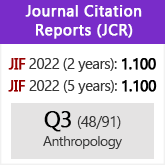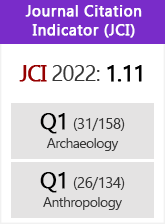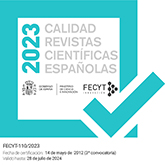Rethinking the Iron Age
DOI:
https://doi.org/10.3989/tp.1993.v50.i0.493Keywords:
Iron Age, Celts, Everyday Life, Eurocentrism, Contextual Archaeology, The Difference of the PastAbstract
This paper argues there is an urgent need to critically evaluate the basic assumptions used by Iron Age archaeologists across Europe. It suggests that the existing frameworks of explanation and interpretation are at best inadequate to understand the actual archaeological evidence for the period. At worst they are still unconsciously reproducing nineteenth century nationalist and racist ideologies (e. g. the preoccupations with the «Celts≫ or «Iberians≫, etc.). Drawing on examples from Britain, and the Czech and Slovak republics. We will argue that archaeological evidence Iron the Iron Age does not neatly fit our modernist and Eurocentric assumptions about what the period ought to have been like. It suggests Iron Age archaeology must recognise the difference of the past, that prehistoric societies in Europe may have had very different forms of social organisations, world views and economies than those in later European history. This means critically questioning archaeological evidence and being open to the possibility that existing interpretations are wrong (e. g. stressing the impact of the Mediterranean World Economy, that Oppidas were urban centres, or that settlement and subsistence data can be adequately understood in modern capitalist/functionalist terms, etc.). As such Iron Age studies can on/y be a «Contextual Archaeology≫.
Downloads
Download data is not yet available.
Downloads
Published
1993-12-30
How to Cite
Hill, J. D., & Cumberpatch, C. G. (1993). Rethinking the Iron Age. Trabajos De Prehistoria, 50, 127–137. https://doi.org/10.3989/tp.1993.v50.i0.493
Issue
Section
Articles
License
Copyright (c) 1993 Consejo Superior de Investigaciones Científicas (CSIC)

This work is licensed under a Creative Commons Attribution 4.0 International License.
© CSIC. Manuscripts published in both the printed and online versions of this Journal are the property of Consejo Superior de Investigaciones Científicas, and quoting this source is a requirement for any partial or full reproduction.All contents of this electronic edition, except where otherwise noted, are distributed under a “Creative Commons Attribution 4.0 International” (CC BY 4.0) License. You may read here the basic information and the legal text of the license. The indication of the CC BY 4.0 License must be expressly stated in this way when necessary.
Self-archiving in repositories, personal webpages or similar, of any version other than the published by the Editor, is not allowed.
















